
Research Brief – Best Practices for Using AI in Healthcare and Disability Management
Best Practices for Using AI in Healthcare Artificial intelligence (AI) is transforming the way we work by offering new ways to automate and streamline repetitive

Best Practices for Using AI in Healthcare Artificial intelligence (AI) is transforming the way we work by offering new ways to automate and streamline repetitive
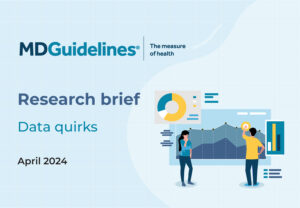
Data quirks This research brief highlights some unusual data trends from MDGuidelines’ population database of 20 million claims and predictive modelling, and hypothesizes about possible
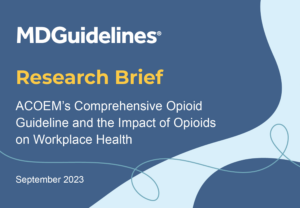
Workplace Health & Opioids Where do we stand? This research brief highlights updates from the latest ACOEM opioids guidance, the evidence supporting adherence to opioids
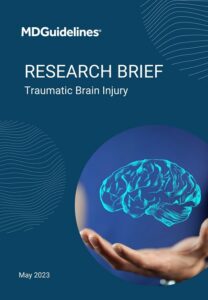
Treating traumatic brain injury Impact of TBI In the United States, approximately 1.7 million people sustain a traumatic brain injury (TBI) annually and 1 in

A new CME credit program lets physicians and other healthcare professionals earn CME credits, via Internet Point of Care (IPoC) learning. IPoC learning is a
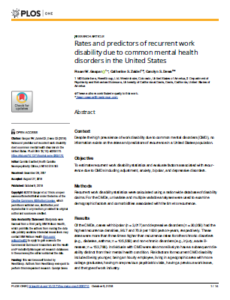
Context The use of clinical-practice guidelines is a suggested method for improving health outcomes by the earlier provision of necessary and effective medical interventions. Objective
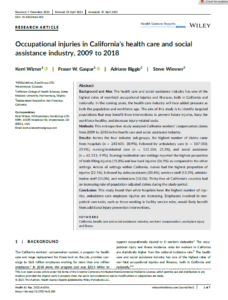
Background and Aim: The health care and social assistance industry has one of the highest rates of non-fatal occupational injuries and illnesses, both in California
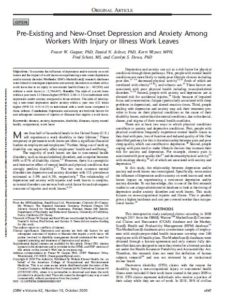
The two most common mental disorders are depressive and anxiety disorders with U.S. prevalence estimated at 5.9% and 6.3%, respectively. In this study, the relationship
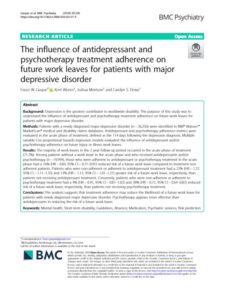
To support the patients suffering from anxiety, depressive disorders, clinicians and employers should work together to provide access to psychotherapy and promote the benefit of
The video showcase the impacts of opioids prescriptions and ACOEM guidelines recommendations to patients. The comparison between two forms of treatment and recommendation highlights the